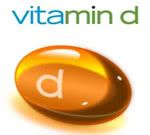Showing posts with label Institute of Medicine. Show all posts
Showing posts with label Institute of Medicine. Show all posts
Tuesday, June 5, 2012
Calcium
Your body can't absorb a full day's worth of calcium at once, so space out your servings. Your body can handle only about 500 to 600 mg of calcium in one 6 to 8 hour period and absorbs only about 30% of that.
The Institute of Medicine recommends 1,000 mg a day for women ages 19 to 50; 1,200 mg for those over 50. For men, they recommend 1,000 mg a day for ages 19 to 70; 1,200 mg a day for men 71 and older.
Osteoporosis is often thought of as a women's illness, but men aren't immune. Their bone loss is more gradual than women's because they don't undergo menopause. One out of every four men over age 50 will break a bone due to osteoporosis---making it more prevalent than prostate cancer.
Sunday, February 13, 2011
Overdosing On Vitamin D Can Harm Your Health
Because of conflicting reports on Vitamin D and Calcium, the U.S. and Canadian governments asked the Institute of Medicine to assess the current data and come up with a recommendation for intake levels of these vitamins. After reviewing thousands of studies, and obtaining input from scientists and experts, they came up with the following conclusions:
- There is a strong body of evidence that substantiates the importance of Vitamin D and Calcium in promoting bone health.
- The health benefits of Vitamin D, beyond bone health, is mixed and inconclusive. More study is needed.
- There is emerging evidence that taking too much Vitamin D may cause kidney damage.
- Because of a lack of standardization in laboratories doing Vitamin D testing, the number of people with Vitamin D deficiency in the U.S. may have been overestimated. (Many labs are using cut-off points for deficiency that are much higher than the Institute of Medicine suggests is appropriate. They say 20 nanograms per milliliter is the level they found to be needed for bone health. Some labs are using higher levels.)
- They recommend 600 I.U. of Vitamin D for people 50 and younger. 800 I.U. for people 51 and older.
- They recommend you do not exceed 4,000 I.U. of Vitamin D daily. (This excludes short-term high dosage therapy doctors recommend for vitamin d deficiency.)
Subscribe to:
Posts (Atom)

